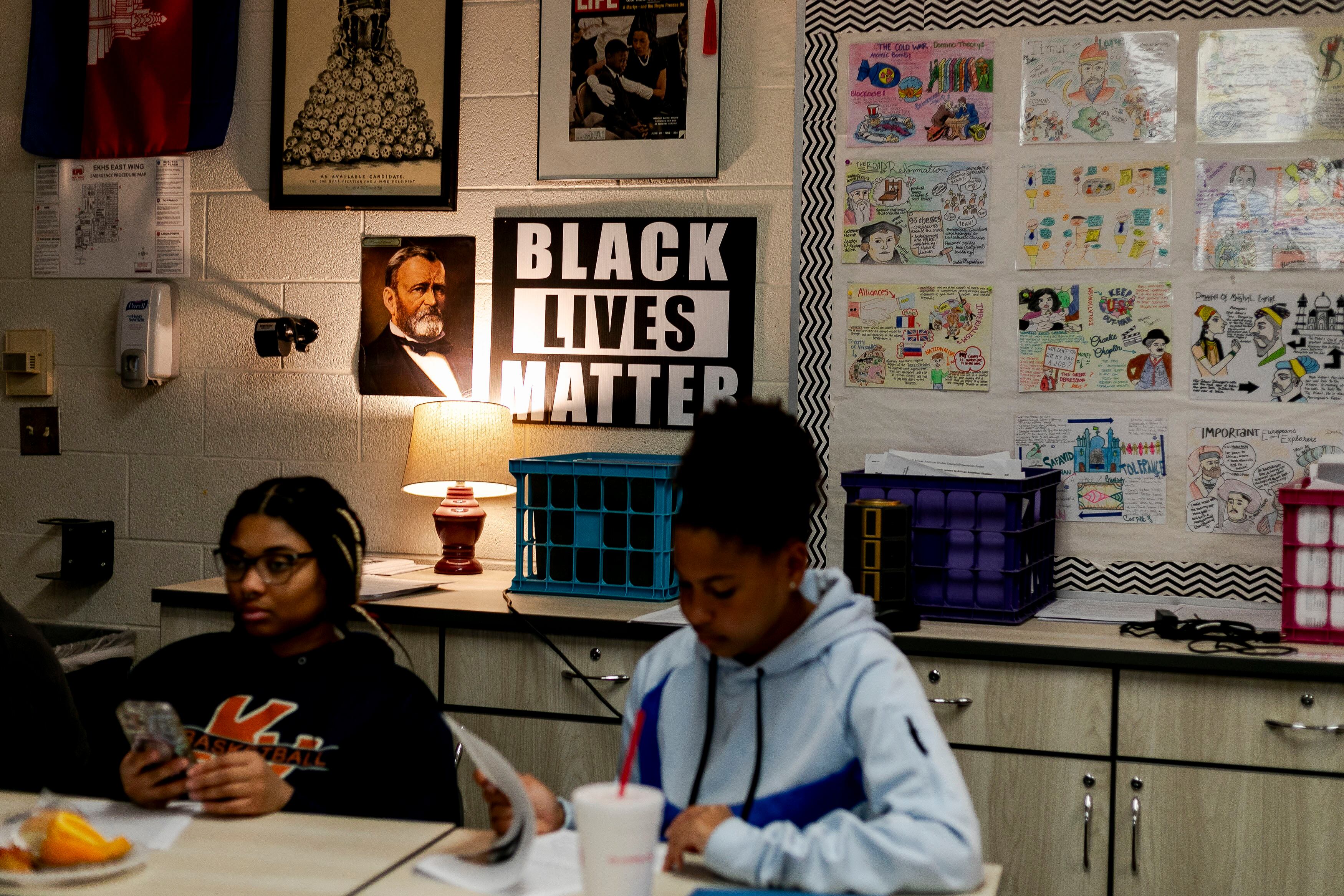Sign up for Chalkbeat’s free weekly newsletter to keep up with how education is changing across the U.S.
The Trump administration’s efforts to use its civil rights authority to root out practices associated with diversity, equity, and inclusion from American schools are on hold after judges issued temporary injunctions in response to three lawsuits.
The injunctions come the same day that the U.S. Department of Education had set as a deadline for states to certify compliance with the Trump administration’s contested interpretation of civil rights law — or risk their federal funding.
Taken together, the injunctions block the Trump administration from penalizing states that don’t sign the certification document and from enforcing civil rights guidance from a February Dear Colleague letter in which the Education Department first laid out its new interpretation.
The injunctions also delay what had been a looming standoff between the Education Department and more than a dozen states that had refused to sign the certification. Leaders in those states said they already comply with civil rights law and that the administration’s demands were too vague and may not even be legal.
The Education Department did not respond to requests for comment Thursday.
Typically the Trump administration has appealed preliminary injunctions, with occasional success. The administration has also pushed back against nationwide injunctions, such as judges issued in two of the three lawsuits, and asked the courts to grant more limited relief just to the groups that sued.
“Today’s decision affirms what we have always known: this administration’s attempts to censor schools, teachers, educators, colleges, and universities is unlawful,” Skye Perryman, president and CEO of Democracy Forward, an advocacy group that represented the American Federation of Teachers in one of the lawsuits, said in a statement. “The nationwide injunction will pause at least part of the chaos the Trump administration is unleashing in classrooms and learning communities throughout the country.”
Trump escalates attacks on DEI in schools
President Donald Trump came into office pledging to remove “woke” from American classrooms. He signed an executive order banning schools from teaching DEI, while defining it as “discriminatory equity ideology.” What that meant became clearer when the Education Department’s Office for Civil Rights issued a Dear Colleague letter in February that described how officials intended to interpret and enforce federal anti-discrimination requirements.
The letter pointed to the U.S. Supreme Court’s decision in Students for Fair Admissions vs. Harvard, which banned the use of race in college admissions. That decision, the letter said, means practices such as trying to recruit more teachers of color or diversify magnet school enrollment could also represent illegal discrimination.
The letter also warned schools about the use of race-neutral criteria that were adopted with the aim to increase racial diversity. Classroom instruction or training programs that asked participants to consider how race shaped their perspective or that suggested some groups might carry a greater moral burden could also be a problem, if they created a hostile environment for some participants.
Many legal experts say the administration’s interpretation goes well beyond established law.
On April 3, the U.S. Department of Education told state education agencies that they must certify they are in compliance with the administration’s interpretation of federal civil rights law.
States that don’t sign will lose their federal funding, including Title I dollars that provide critical resources for high-poverty schools, the department said.
The Trump administration has signaled that states should take its threats to withhold funding seriously. In an unprecedented move, the Education Department is moving to strip K-12 aid from Maine following an investigation under Title IX — the federal law banning sex discrimination in education — into the state’s policy for transgender athletes.
Nonetheless, at least 16 states, most of them led by Democrats, already have said they do not intend to sign. Another 16 states and the territory of Puerto Rico have signed the letter, according to a tracker maintained by Education Week. Some school districts are changing their practices in response. For example, one Indiana school district ended a program giving contracting preferences to minority-owned and local businesses.
In two lawsuits by national teachers unions originally filed against the Dear Colleague letter, educators said the new guidance was so vague that it was nearly impossible to tell what was and wasn’t allowed. They also said the guidance goes against established law and decades of civil rights precedent. Those lawsuits were later expanded to ask courts to block the certification requirement.
In a third lawsuit representing parents and students, the NAACP Legal Defense Fund said the Dear Colleague letter and certification requirement put pressure on schools to back away from obligations to better serve Black students that they had never fully met in the first place. They pointed to an Iowa school that had withdrawn students from an African American reading event as just one example.
U.S. District Court Judge Landya McCafferty issued the first preliminary injunction Thursday in response to a lawsuit brought by the American Civil Liberties Union on behalf of the National Education Association, its New Hampshire chapter, and the Center for Black Educator Development.
McCafferty declined to block the Trump administration’s enforcement efforts nationwide. Rather, the injunction blocks the Education Department from withholding federal funds from any school district or other government entity that employs teachers represented by the NEA or associated with the Center for Black Educator Development, a training and advocacy organization. The NEA says it has about 3 million members.
“Today’s ruling allows educators and schools to continue to be guided by what’s best for students, not by the threat of illegal restrictions and punishment,” NEA President Becky Pringle said in a statement.
Shortly afterward, U.S. District Court Judge Stephanie Gallagher issued a separate order in a lawsuit brought on behalf of the American Federation of Teachers, the other national teachers union, its Maryland chapter, and an Oregon school district. Gallagher said the Education Department did not follow proper procedures in developing new civil rights rules.
The February Dear Colleague letter about civil rights enforcement represented a substantial enough change, Gallagher wrote, that it should have gone through a more formal process that allowed for public feedback.
In the third case, U.S. District Court Judge Dabney Friedrich issued a nationwide injunction against the certification requirement but declined to issue an injunction against the Dear Colleague letter. Friedrich did not think issuing the letter violated any procedural requirements, and she said the federal courts couldn’t prevent school districts from changing their policies in response to the new administration.
But she did find that the new guidance was so vague and the consequences for violating it so significant as to be potentially unconstitutional.
The differing decisions and reasoning are representative of the confusing legal landscape that has developed since Trump took office.
Nonetheless, Allison Scharfstein, an attorney with the Legal Defense Fund, said she felt confident that the “patchwork of relief” would block the Education Department from pursuing its new approach to enforcement while the lawsuits continue.
This story has been updated throughout with an additional judicial decision and more background information.
Erica Meltzer is Chalkbeat’s national editor based in Colorado. Contact Erica at emeltzer@chalkbeat.org.





